Don’t let adjustment disorder rob you of one more day. Sierra Tucson can provide you with the personalized treatment you need so that you can live the healthier life you deserve. Learn more about our comprehensive services in Tucson, Arizona.
Learn More About Adjustment Disorder Treatment
Learn more about adjustment disorder treatment at Sierra Tucson
While many individuals are familiar with mood disorders such as anxiety and depression, there is another kind of mood disorder that the Diagnostic and Statistical Manual of Mental Disorders, Fifth Edition (DSM-5) reports as occurring in nearly 20% of those seeking care in an outpatient setting. Known as adjustment disorder, this common condition occurs in response to severe trauma or stress within one’s life. While it is very typical to display depressive symptoms in light of an upsetting event, these symptoms often resolve with time and appropriate self-care. However, some individuals continue to experience symptoms including depression, fatigue, anxiety, and an impairment in functioning long after the upsetting event occurs. When this happens, it is likely that the individual is suffering from the effects of adjustment disorder, and they might need professional care to defeat this condition.
At times, individuals who are struggling with an adjustment disorder will look to dull the pain of their symptoms by abusing illicit substances. The effects of these attempts can be fleeting, and typically result in one experiencing a worsening of symptoms. As a result, they will likely develop an additional problem – a substance use disorder. Regardless of what substance or substances an individual abuses, finding a treatment center that is ready to offer services that target mental health conditions and substance abuse simultaneously will be critical for achieving recovery. At Sierra Tucson, the best rehab center for adjustment disorder treatment, we know that for an individual to truly heal, they must address all areas of their health at the same time. This means partaking in comprehensive treatment that supports one’s mental, emotional, physical, and behavioral issues in an all-inclusive manner. At our treatment center, we feel that an individual is more than just their symptoms, and we have provided flexible treatment that is able to provide personalized treatment for each individual who comes to us for premier care. With our help, you or someone you love can defeat the pain of an adjustment disorder and end the pattern of chemical dependence.
How to Help a Loved One
Helping a loved one get treatment for adjustment disorder
Watching someone you care for struggle because of an adjustment disorder can be heartbreaking, especially if you are unsure of what you can do to help them. Without first-hand experience with mental illness and/or addiction, helping someone you love get treatment might appear to be an overwhelming task. However, there are some easy things you can do to help your loved one get the treatment they need. Consider the following:
- Obtain a stronger understanding of adjustment disorder, as it will help you gain a stronger insight into what your loved one is experiencing.
- Look into treatment centers that can provide care for those who are struggling with this type of condition, as well as substance abuse.
- Speak to your loved one regarding what information you have obtained, and let them know (in a nonjudgmental manner) that you are concerned for them and encourage treatment. Keep the conversation focused on obtaining treatment, even if they seem resistant.
- If your loved one accepts treatment, let them know that you will be a pillar of support the entire way through. Do everything you can to support your loved one, but do not forget to practice good self-care so that you are able to be effective in your support.
Why Consider Treatment
Why consider treatment for adjustment disorder at Sierra Tucson
Similar to any other health issue, adjustment disorder is a progressive illness. This means that, if it is left untreated, symptoms will become worse as time passes, leading to more and more upset to the individual who is affected. Adjustment disorder is a stress-related condition that leads to a dramatic impairment in functioning, as well as a number of disturbances to an individual’s wellbeing. However, when paired with substance use disorder, these disturbances can increase in both number and intensity.
At Sierra Tucson, a premier adjustment disorder treatment center, we specialize in healing the damage that comes from adjustment disorder and chemical dependence. Our treatment plans are individualized and comprehensive, and our patients have access to many residential treatment options that supply services for a number of mental health issues, addictions, unique populations, and compulsive behaviors. We realize that no two individuals are alike, which is why we feel that there is no straight line to recovery. Therefore, we are dedicated to supplying a number of services and time-tested treatment modalities that can be individualized to meet the needs of the individual who comes to heal at our rehab.
Types of Treatment
Types of adjustment disorder treatment offered at Sierra Tucson
As an internationally known and respected treatment provider of medical, therapeutic, and experiential services, our treatment center is pleased to offer the best care for a wide range of concerns that are known to plague adults of all genders. With evidence-based practices that are rooted within integrative therapies, our rehab prides itself on being a leading provider of services that are effective in treating chemical dependency issues, eating disorders, and psychiatric concerns, including adjustment disorders. Holistic and individualized treatment are cornerstone to the care offered at our treatment center, and the staff of qualified and experienced professionals administer this care by utilizing a dynamic approach to treating patients. It is the ambition of our rehab to deliver services in such a manner that all who come to us for treatment will be able to transcend the challenges of the past and resume the pursuit of a healthy and productive future.
Our treatment center includes our 15-bed behavioral health inpatient unit, and a 124-bed behavioral health residential treatment center, both of which are situated on the same campus. Patients who require immediate stabilization due to the presence of psychiatric concerns, such as those that may be associated with adjustment, or those who are in need of medical detoxification services, can receive these interventions prior to engaging in our rehab’s residential care. Following the completion of treatment at our inpatient program, patients will then engage in the comprehensive treatment offered at our rehab center’s behavioral health residential treatment center.
Treatment for adjustment disorders is delivered through our adjustment disorder rehab’s Mood and Anxiety Program. Offered within our behavioral health residential treatment center, services supplied in this treatment plan are designed to produce the most favorable outcomes for all patients. The neuropsychiatric treatment provided in this plan is designed to heal the mind, body, and spirit in a naturally scenic, tranquil setting that offers the best around-the-clock care. Using an interdisciplinary team approach through a customized blend of conventional, complementary, and evidence-based treatments, the caring and compassionate staff strives to support each person’s unique capacity to flourish and achieve overall wellness. The all-encompassing goal of the Mood and Anxiety Program is to help patients decrease the symptoms that plague them, while also helping them to gain the tools needed to resume healthy daily functioning, free from the turmoil elicited by adjustment disorder.
The types of services you receive will be determined by your treatment team. The intensive nature of this treatment incorporates cognitive behavioral therapy and dialectical behavior therapy workshops, in addition to continuously providing psychodynamic therapy throughout the various aspects of the therapeutic process. Patients engaged in the Mood and Anxiety Program are offered the following treatment methods which are outlined in each person’s individualized treatment plan, as well as in our treatment center’s daily treatment schedules:
Medication management: Individuals who are suffering from adjustment disorder often find alleviation from their symptoms through the implementation of psychotropic medications. The need for medication, however, is always determined on a case-by-case basis at our rehab. Patients engaged in the Mood and Anxiety treatment plan are seen by a psychiatrist or attending physician on a weekly basis in order to determine the need for medication, monitor medication, and adjust any medication that has been prescribed. Registered nurses and clinical technicians also assist in monitoring a patient’s medication needs.
Individual therapy: Upon entering the Mood and Anxiety treatment plan, each patient is assigned a primary therapist who they will meet with at least once each week. All individual sessions are conducted by Master’s level clinicians and licensed psychologists at our adjustment disorder treatment center and are designed to afford patients the opportunity to discuss their progress in treatment, address any concerns that may arise, and process through various feelings that they are experiencing.
Group therapy: At the time that patients are admitted into the Mood and Anxiety treatment plan, they are assigned to a small group of peers, all of whom are engaged in the same plan. This group will meet together for therapy sessions four times per week at our rehab. In addition to serving as a general process group, topics that are covered during these group sessions may include, but are not limited to:
- Learning about codependency and coping skills
- Learning about holistic options for healthy living
- Learning tools for how to express anger in a healthy and productive manner
- Working through grief and loss
- Mindfulness
- Healing anxiety
- Managing stress
- Identifying and processing feelings of shame to move to a place of resilience
- Relapse prevention
Therapeutic Recreational Activities: In order to help patients build a stronger sense of self and increased confidence as they overcome the symptoms of adjustment disorder, this treatment option offers patients a myriad of therapeutic activities, which are conducted daily or on a weekly basis. A patient’s participation in such activities will be outlined in their treatment plan and may include the following:
- Psychodrama
- Personal training
- Movement therapy
- Opportunities for additional exercise
- Yoga
- Reiki
- Art therapy
- Enhanced equine therapy
- Play therapy
- Adventure therapy (including a ropes course and rock wall)
- Chi Kung
Additional services for purchase: In order to fully care for the needs of those who are working through the symptoms of adjustment disorder, our treatment center is proud to offer a number of additional services through an innovative approach to treatment. Special time is set aside for selected individual appointments which will be outlined in one’s treatment plan in order to address individualized needs. Such services may include, but are not limited to:
- Massage
- Somato-emotional response massage (SER massage)
- EMDR (Eye Movement Desensitization and Reprocessing)
- SE (Somatic Experiencing® Therapy)
- Sensorimotor Psychotherapy
- Salon
- Mindfulness meditation
- Psychological testing
- Biofeedback
- Acupuncture
Furthermore, each day will end on a positive note by allowing patients to gather together and reflect through a Gifts and Blessings Ceremony.
Should a patient require stabilization services while engaged in our adjustment disorder rehab’s residential treatment, they are able to partake in the services supplied by our Behavioral Health Inpatient Unit before returning to residential treatment. The staff of professionals conducts an ongoing assessment of each patient’s progress and needs and offers assistance in making this transition smooth so as to continue the process of healing with as little disruption as possible.
Continuing Care
Continuing care and levels of treatment for adjustment disorder
Sierra Tucson’s method for providing all-encompassing care for every patient who comes for treatment includes thorough discharge planning and continuing care services that are second-to-none. Once a patient engages in services to treat adjustment disorder at our treatment center, a comprehensive, continued care plan is devised so that they can remain successful once treatment is complete. Those partaking in the services meet with continued care staff to assess each individual’s needs and plan for discharge. Those engaged in the residential treatment at our rehab meet with the same continued care staff and regional outreach specialists and partake in lectures and one-on-one planning sessions to ensure quality referrals and to establish any follow-up appointments that may be required once they have been discharged.
Furthermore, patients exiting the residential treatment center, along with their family members, can benefit from The Connections Program. This treatment plan includes 12-month-long case management services that are in place to offer ongoing and substantial support to former patients. A representative from this plan contacts patients 48 hours after they are discharged and is available to assist these individuals in seeking and receiving the additional services they need in order to remain successful in the process of healing and recovery.
Lastly, former patients can take part in the Alumni Services affiliated with our adjustment disorder treatment center. These services include groups offered through outpatient centers, which are located across the United States.
If you or a loved one wishes to receive the superior care that has improved the lives of many individuals who have struggled with adjustment disorder, look no further than our rehab. The life you have envisioned can begin here.













